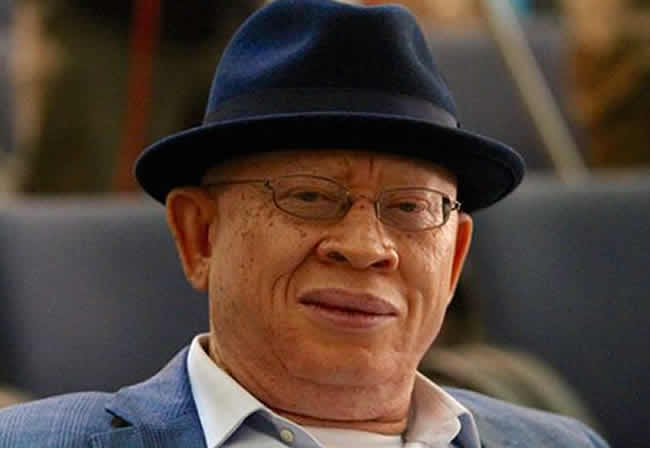The recent local government elections in Rivers State, held on August 30, have ignited a firestorm of controversy, with accusations of electoral malpractice and illegality swirling around the outcome. Jake Epelle, the Chief Executive Officer of TAF Africa, has vehemently denounced the elections as a “democratic scam,” alleging orchestrated political maneuvers that disenfranchized the electorate and undermined the democratic process. The All Progressives Congress (APC) emerged victorious, securing 20 out of the 23 local government areas, while the Peoples Democratic Party (PDP) claimed victory in the remaining three. However, Epelle contends that these results are a gross misrepresentation of the actual events that transpired during the election, casting a dark shadow over the legitimacy of the entire process. He argues that the elections were conducted in violation of established legal and constitutional frameworks, thereby jeopardizing the democratic fabric of Rivers State and potentially plunging it into a constitutional crisis.
Epelle’s condemnation of the elections goes beyond mere criticism of the results. He alleges that the entire exercise was fundamentally flawed from its inception, accusing the authorities of manipulating the process to predetermine the outcome. This alleged maneuvering, he claims, is a blatant disregard for the will of the people and a betrayal of the public trust. He criticizes the perceived attempt to provoke public unrest, urging the youth of Rivers State to resist any incitement to violence and maintain peaceful conduct. Epelle’s characterization of the elections as a “slap on the people of Rivers State” underscores his deep concern about the implications of such alleged electoral malpractice for the future of democracy in the state. He firmly believes that the current trajectory is unsustainable and calls for immediate action to rectify the perceived damage inflicted on the electoral process.
The controversy surrounding the Rivers State local government elections centers on the alleged illegality and unconstitutionality of the process. Epelle contends that the conduct of the elections violated established legal and constitutional provisions, thereby rendering the outcome illegitimate. This claim forms the basis of his assertion that the elections constitute a “democratic scam.” He argues that the authorities responsible for overseeing the elections failed to adhere to the principles of fairness, transparency, and accountability, thereby undermining the integrity of the entire process. This perceived disregard for due process, according to Epelle, has eroded public trust in the electoral system and created a climate of uncertainty and distrust. The implications of these allegations extend beyond the immediate outcome of the elections, raising fundamental questions about the state of democracy in Rivers State.
Epelle’s warning of a looming constitutional crisis stems from the anticipated legal challenges to the election results. He asserts that the alleged irregularities and illegalities that marred the elections will inevitably be contested in court, potentially leading to a protracted legal battle that could further destabilize the state. This anticipated legal challenge, he argues, underscores the gravity of the situation and the urgent need for a comprehensive review of the electoral process to prevent future occurrences of such alleged malpractice. The potential for a constitutional crisis, according to Epelle, highlights the fragility of democratic institutions in Rivers State and the importance of upholding the rule of law to safeguard the integrity of the electoral process.
The disputed figures announced following the Rivers State local government elections further fuel the controversy surrounding the outcome. Epelle questions the accuracy and credibility of the reported results, arguing that they do not reflect the actual votes cast by the electorate. This discrepancy, he claims, is further evidence of the alleged manipulation and irregularities that plagued the elections. He contends that the official figures are a fabricated narrative designed to legitimize a preordained outcome, thereby further disenfranchising the voters and undermining the democratic process. The contested figures, according to Epelle, add another layer of complexity to the already contentious election, further emphasizing the need for a transparent and impartial investigation into the conduct of the elections.
The allegations of electoral malpractice and illegality surrounding the Rivers State local government elections raise serious concerns about the state of democracy in the region. Epelle’s condemnation of the elections as a “democratic scam” reflects a broader sentiment of discontent and distrust among some segments of the population. His call for accountability and transparency in the electoral process underscores the urgent need for reforms to restore public confidence in the integrity of future elections. The controversy surrounding the Rivers State local government elections serves as a stark reminder of the fragility of democratic institutions and the importance of upholding the principles of fairness, transparency, and accountability to ensure free and fair elections. The potential for a constitutional crisis, as warned by Epelle, necessitates a swift and decisive response to address the underlying issues that have eroded public trust in the electoral process and to prevent further damage to the democratic fabric of Rivers State.


